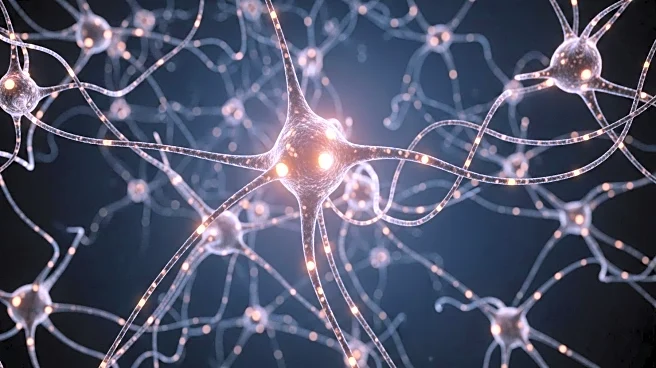What is the story about?
What's Happening?
A study has confirmed the association of biallelic PIGC variants with severe neurodevelopmental disorders, characterized by developmental and cognitive impairments, refractory seizures, and childhood-onset mortality. The research involved 18 previously unreported probands, revealing reduced cell surface levels of glycophosphatidylinositol-anchored proteins (GPI-APs) due to dysfunctional PIGC. The study highlights the clinical and biomolecular characteristics of PIGC pathogenic variants, emphasizing their impact on neurodevelopment.
Why It's Important?
The findings from this study provide crucial insights into the genetic basis of severe neurodevelopmental disorders, offering potential pathways for targeted interventions. Understanding the role of PIGC variants in disrupting GPI-AP biosynthesis could lead to new therapeutic strategies for managing these conditions. The study underscores the importance of genetic research in identifying and addressing the underlying causes of complex neurological disorders.
What's Next?
Further research is needed to explore potential treatments that can address the defective biosynthesis of GPI-APs caused by PIGC variants. The study's findings could inform the development of targeted therapies aimed at restoring normal protein function and mitigating the impact of these genetic disorders. Collaborative efforts in genetic research and clinical trials may lead to breakthroughs in treating severe neurodevelopmental conditions.
Beyond the Headlines
The study highlights the broader implications of genetic research in understanding and treating neurodevelopmental disorders. By identifying specific genetic variants linked to these conditions, researchers can develop more effective and personalized treatment options. The findings could pave the way for advancements in precision medicine, offering hope for patients with limited therapeutic options.















